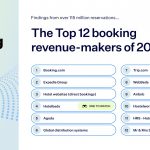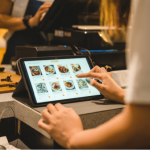We are all familiar with ‘buyer’s remorse’ – but what about a buyer’s hesitation?
NB: This is an article from CartStack
The moment a consumer stares at their digital shopping cart, consumed with quiet contemplation before making the final decision to purchase. As a consumer, we’ve all been there, but as a hotel brand, this moment represents a critical obstacle.
Subscribe to our weekly newsletter and stay up to date
Within the hospitality industry, in particular, booking hesitation is incredibly high; in fact, conversion rates for hotel websites average between 1.7% and 2%. Although the travel industry spends billions of dollars every year driving traffic to their websites, 81% of visitors reportedly leave before completing their booking. From a financial perspective, this equals a $1.78 trillion loss.
Perhaps this should come as no surprise – planning a trip is, after all, a welcome reprieve from daily demands and monotony. Often, it’s hard not to get swept up in feelings of wanderlust as we scroll through images of beautiful, faraway places and luxurious, welcoming hotels – even if we’re not yet ready to book a trip. But is timing (and curiosity) wholly to blame for hotels sitting atop a hypothetical graveyard of almost-booked trips, or is there something more to it?
With over 700 million people booking their hotel rooms online by 2023, hotels should understand why guests look but don’t book. Better yet, hotels should find ways to mitigate that resistance and encourage higher conversion rates amongst prospective travelers.
1. The More Research, the Better
Considering the price point of a vacation is often relatively high compared to other retail purchases, it should be expected that prospective travelers want to take their time and do their due diligence when considering their next travel purchase. With this in mind, many users who abandon their booking are still in the “discovery” phase of their trip planning process and may simply need more time to research other destinations, accommodation options, and dates. According to TripAdvisor, younger travelers leave their research for later, while older generations are more likely to book well in advance. People between 18-34 book between one week to one month prior, while people aged 55+ book more than four months in advance. The people who book their activities ahead of their trip will spend more on accommodation (47%) and travel (81%) than their more impulsive counterparts who book in-destination.
According to Phocuswire research, 39% of respondents abandoned travel purchases because they were just looking and had more research to do. Millward Brown stats also reveal that users booking holidays visit as many as 38 travel sites before solidifying their reservation(s).
Moreover, past research from Boxever revealed that more than 50% of travelers don’t have a set destination in mind when planning a trip, doubling the conversion timeline compared with traditional retail. More often than not, prospective travelers are using the preliminary steps of the checkout process to create a “wishlist” of sorts while establishing an accurate account of what their vacation could cost.
2. User Experience Matters
Google research shows that 94% of leisure travelers switch between devices when they plan or book a trip, and 46% of travelers with smartphones say they make their decision on mobile but then book on another device. Of those guests that do attempt to make a booking on their mobile, 91% will abandon their cart (the eCommerce average is between 65-75%).
Why is cart abandonment so high in this particular example? According to those surveyed, it’s due to a poor user experience. And according to our 2022 Travel Digital Experience Benchmark Report, new users made up 54% of traffic in 2021. This means that after visiting a site once, many users chose not to return and instead explored other sites that offered a better experience.
Now, more than ever, travelers expect a convenience-driven, personalized, and seamless guest experience, which includes the digital path to purchase. If hotels fail to optimize the booking experience for all mediums and devices, prospective guests will take their business elsewhere. In fact, 13% of users who have abandoned a travel purchase felt the booking process was too long or the checkout too complicated, 9% experienced technical issues, and 7% had issues with payments, or the option they wanted was unavailable. Simply put, if hotels fail to streamline the booking experience, they will also fail to improve their conversion rates.
3. The Paradox of Choice
In some cases, travelers are simply overwhelmed by options and information in the early stages of their booking journey. While working to win the favor of prospective guests, hotels should look to differentiate from the competition by clearly showcasing the value and booking options they offer guests. One of the biggest factors hampering travel bookings is the lack of transparency. Comparing too many options is challenging and becomes a roadblock. A Mastercard-sponsored Harvard Business Studies show that :
57% of U.S. travelers think brands should tailor their information based on personal preferences or past experiences.90% of all travelers expect a personalized experience when they book a hotel.36% say they’re prepared to pay more to get a more personalized customer experience.73% of customers find personalized product recommendations important.
Hotels should look to leverage data to better personalize and position offers to guests while avoiding complicated or confusing terms and conditions. More than half of organizations plan to invest in customer personalization so they can improve the relationship, increase retention and boost revenue. Savvy hotel brands, like Hilton, are taking note and now offer a ‘choose your own room’ feature, allowing guests to choose a room that suits them before checking in.
4. Price Disparity
Research indicates that 37% of users abandon travel purchases prior to booking due to high prices and a desire to compare prices offered by competitor properties. In an effort to instill purchase confidence, hotels should know how their prices compare to current industry averages and, more importantly, make sure rates are the same across all distribution channels. Research indicates that 53% of users abandon their cart when shown the total price, especially when travel sites surprise users with additional hidden fees and charges during the booking process.
Not offering flexible payment options can hurt your conversion rate and cause visitors to abandon their bookings, creating a negative experience that doesn’t lead to returning visitors.
After all, travel is often among the most expensive purchases an individual or family will make all year, so it’s important to maintain price parity, price transparency, (and competitive pricing), and frictionless payments to encourage guests to book.
5. Why Aren’t More Hotels Utilizing a Booking Recovery Solution?
Now for some good news – recent surveys reveal that travelers are “getting revenge” on their lost holidays by spending more. More than half of consumers (54%) will spend more on their rebooked trips, and one in four (27%) say it will be a significant amount. Some plan to spend thousands. Others won’t put a limit on their spending. Moreover, 87% of consumers who have abandoned a travel purchase responded that they would be likely to search for the booking again, with 46% saying they would do so within 24 hours of abandoning the booking. However, the best way for hotels to reconnect with prospective guests and bring them back into the booking funnel is to utilize technology designed specifically for that purpose.
With a reservation recovery solution, hotels can recover lost customers and abandoned cart sales automatically via data-driven email reminders and promotional offers, SMS text messages, and real-time browser notifications that are personalized to each user. To this effect, hotels using the RezRecover platform benefit from a 55% open rate, a 16% average booking recovery rate, a 30% lift in average order values for recovered bookings, and a $40:1 average ROI for RezRecover plans.
People are ready to travel. After 2 years spent mostly at home in front of our screens, most of us crave new experiences and adventures. And the data supports this — 25% of travelers expect to travel more than before COVID-19 while 58% expect to go back to their usual travel routine. A booking recovery platform is an easy yet incredibly powerful tool available to hotel brands who wish to capitalize on post-pandemic travel interest, improve their conversion rates, keep prospective travelers engaged, and drive more business to their property.
Read more articles from CartStack
The post 5 Reasons Why Hotel Guests Look But Don’t Make The Booking appeared first on Revenue Hub.
































